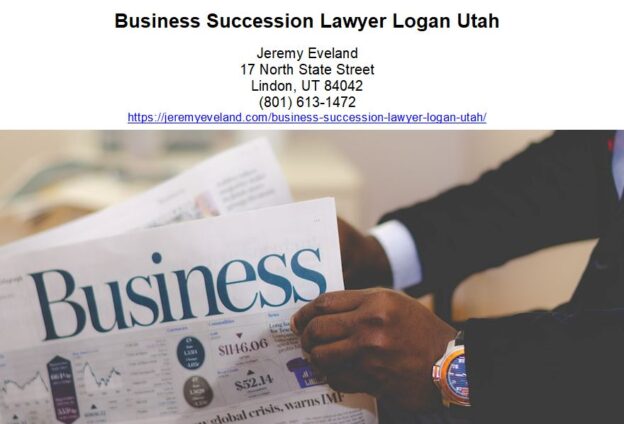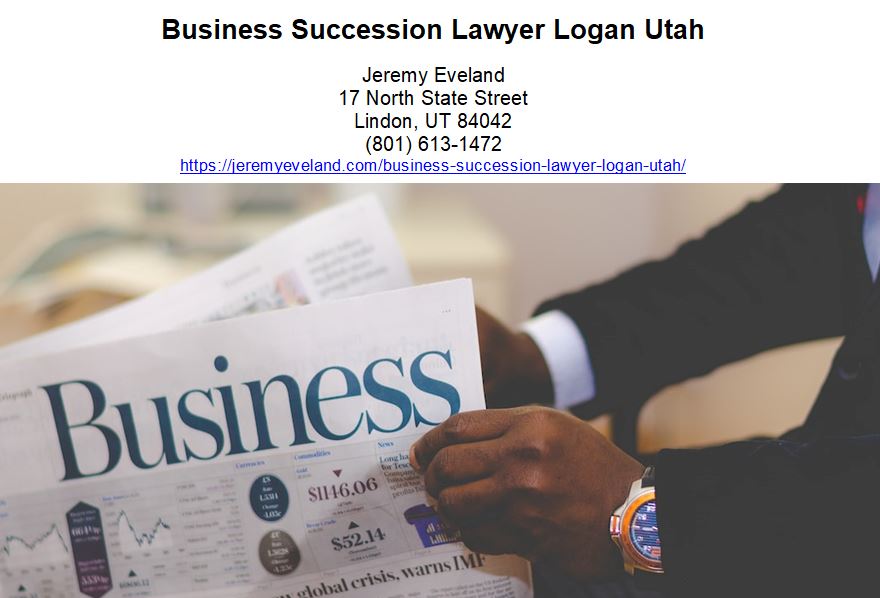-
Trust Lawyer
- Introduction
- What You Need to Know About the Formation Documents for a Trust
- What Is A Grantor in a Trust?
- What Is The Corpus of a Trust?
- What Is The Beneficiary of a Trust?
- What You Need to Know About the Grantor and Beneficiaries of a Trust
- How to Choose the Right Trustee for Your Trust
- What You Need to Know About the Tax Implications of Forming a Trust
- Understanding the Legal Requirements to Form a Trust
- Why You Need A Trust Lawyer To Help You With Trusts
- Q&A
“Secure Your Future with Legal Requirements To Form A Trust!”
Introduction
A trust is a legal arrangement that allows a person or organization to hold assets on behalf of another person or organization. It is a way to manage and protect assets for the benefit of another person or organization. The trust is created by a settlor, who transfers assets to a trustee, who holds and manages the assets for the benefit of the beneficiaries. The trust is governed by the terms of the trust document, which sets out the rights and obligations of the parties involved. In order to form a trust, there are certain legal requirements that must be met. This article will discuss the legal requirements to form a trust.
What You Need to Know About the Formation Documents for a Trust
Trusts are a popular estate planning tool used to manage assets and provide for beneficiaries. The formation documents for a trust are the legal documents that create the trust and set out the terms and conditions of the trust. It is important to understand the contents of these documents in order to ensure that the trust is properly established and that the trust’s purpose is achieved.
The formation documents for a trust typically include the trust agreement, the trust deed, and any other documents that are necessary to establish the trust. The trust agreement is the document that sets out the terms and conditions of the trust, including the purpose of the trust, the trustee’s duties and responsibilities, the beneficiaries of the trust, and the trust’s assets. The trust deed is the document that transfers the assets of the trust to the trustee.
The formation documents for a trust should also include any other documents that are necessary to establish the trust, such as a will, a power of attorney, or a deed of appointment. These documents may be necessary to ensure that the trust is properly established and that the trust’s purpose is achieved.
When creating the formation documents for a trust, it is important to ensure that all of the necessary documents are included and that all of the information is accurate. It is also important to ensure that the trust is properly funded and that the trust’s assets are properly managed.
The formation documents for a trust should be reviewed by a qualified attorney to ensure that the trust is properly established and that the trust’s purpose is achieved. An attorney can also provide advice on how to best manage the trust’s assets and ensure that the trust’s beneficiaries are properly provided for.
What Is A Grantor in a Trust?
A grantor is the individual who creates a trust. The grantor is also known as the trustor, settlor, or trustmaker. The grantor is the person who transfers assets into the trust and appoints a trustee to manage the trust assets. The grantor is responsible for providing the trustee with instructions on how to manage the trust assets and how to distribute them to the beneficiaries. The grantor also has the power to revoke or amend the trust at any time. The grantor is typically the person who will benefit from the trust, either directly or indirectly.
What Is The Corpus of a Trust?
The corpus of a trust is the total amount of money or assets that are held in the trust. It is the principal sum of money or assets that are placed into the trust by the grantor, or the person who creates the trust. The corpus of the trust is managed by the trustee, who is responsible for investing and managing the trust assets in accordance with the terms of the trust. The corpus of the trust can be used to provide income to the beneficiaries of the trust, or it can be used to pay for expenses related to the trust. The corpus of the trust can also be used to make charitable donations or to fund other activities that are in accordance with the terms of the trust.
What Is The Beneficiary of a Trust?
The beneficiary of a trust is the individual or entity that is entitled to receive the trust’s assets or income. The beneficiary is the person or entity for whom the trust was created and who will benefit from the trust’s assets. The beneficiary may be an individual, a group of individuals, a charity, or an organization.
The trust document will specify the beneficiary’s rights and responsibilities. Generally, the beneficiary has the right to receive the trust’s income and assets, as well as the right to information about the trust’s activities. The beneficiary may also have the right to request changes to the trust’s terms or to terminate the trust.
The trustee is responsible for managing the trust’s assets and income in accordance with the trust document and applicable laws. The trustee must act in the best interests of the beneficiary and must ensure that the trust’s assets are used for the benefit of the beneficiary.
The beneficiary of a trust is the person or entity who will benefit from the trust’s assets and income. The trust document will specify the beneficiary’s rights and responsibilities, and the trustee is responsible for managing the trust’s assets and income in accordance with the trust document and applicable laws.
What You Need to Know About the Grantor and Beneficiaries of a Trust
A trust is a legal arrangement in which a grantor transfers assets to a trustee to manage for the benefit of one or more beneficiaries. The grantor is the individual who creates the trust and transfers assets into it. The trustee is the individual or entity responsible for managing the trust assets according to the terms of the trust document. The beneficiaries are the individuals or entities who benefit from the trust assets.
It is important to understand the roles and responsibilities of each of these parties in order to ensure that the trust is properly managed and that the beneficiaries receive the intended benefits.
The grantor is the individual who creates the trust and transfers assets into it. The grantor has the authority to determine the terms of the trust, including who will be the trustee and who will be the beneficiaries. The grantor also has the authority to revoke or amend the trust at any time.
The trustee is the individual or entity responsible for managing the trust assets according to the terms of the trust document. The trustee has a fiduciary duty to act in the best interests of the beneficiaries and must manage the trust assets in accordance with the terms of the trust document. The trustee is also responsible for filing any necessary tax returns and ensuring that the trust assets are distributed according to the terms of the trust.
The beneficiaries are the individuals or entities who benefit from the trust assets. The grantor can designate any individual or entity as a beneficiary, including themselves. The beneficiaries have the right to receive distributions from the trust according to the terms of the trust document.
It is important to understand the roles and responsibilities of each of these parties in order to ensure that the trust is properly managed and that the beneficiaries receive the intended benefits. A qualified attorney can provide guidance on the creation and management of a trust.
How to Choose the Right Trustee for Your Trust
Choosing the right trustee for your trust is an important decision that should not be taken lightly. A trustee is responsible for managing the trust assets and ensuring that the trust is administered according to the terms of the trust document. The trustee must also act in the best interests of the beneficiaries of the trust.
When selecting a trustee, it is important to consider the individual’s qualifications, experience, and trustworthiness. The trustee should have a thorough understanding of trust law and the ability to manage the trust assets in a prudent manner. It is also important to consider the trustee’s availability and willingness to serve.
The trustee should be someone who is trustworthy and reliable. The trustee should also be someone who is familiar with the trust document and the wishes of the grantor. It is important to select a trustee who is willing to act in the best interests of the beneficiaries and who is willing to communicate with them regularly.
It is also important to consider the trustee’s fees. The trustee should be compensated for their services, but the fees should be reasonable and in line with industry standards.
Finally, it is important to select a trustee who is willing to work with the grantor and the beneficiaries to ensure that the trust is administered according to the grantor’s wishes. The trustee should be willing to provide regular updates and to answer any questions that the beneficiaries may have.
Choosing the right trustee for your trust is an important decision that should not be taken lightly. It is important to select a trustee who is qualified, experienced, and trustworthy. The trustee should also be willing to act in the best interests of the beneficiaries and to communicate regularly with them. Finally, the trustee should be compensated fairly for their services.
What You Need to Know About the Tax Implications of Forming a Trust
Forming a trust can be a great way to protect your assets and ensure that your wishes are carried out after you pass away. However, it is important to understand the tax implications of forming a trust before you make any decisions.
First, it is important to understand the different types of trusts. A revocable trust, also known as a living trust, allows you to make changes to the trust during your lifetime. An irrevocable trust, on the other hand, cannot be changed once it is created.
The tax implications of forming a trust depend on the type of trust you create. A revocable trust is treated as part of your estate for tax purposes, meaning that any income generated by the trust is taxed as part of your estate. An irrevocable trust, however, is treated as a separate entity for tax purposes, meaning that any income generated by the trust is taxed separately from your estate.
In addition, it is important to understand the gift tax implications of forming a trust. If you transfer assets to a revocable trust, the transfer is not subject to the gift tax. However, if you transfer assets to an irrevocable trust, the transfer may be subject to the gift tax.
Finally, it is important to understand the estate tax implications of forming a trust. If you transfer assets to a revocable trust, the transfer is not subject to the estate tax. However, if you transfer assets to an irrevocable trust, the transfer may be subject to the estate tax.
Forming a trust can be a great way to protect your assets and ensure that your wishes are carried out after you pass away. However, it is important to understand the tax implications of forming a trust before you make any decisions. Consulting with a qualified tax professional can help you understand the tax implications of forming a trust and ensure that you make the best decision for your situation.
Understanding the Legal Requirements to Form a Trust
Forming a trust is a complex legal process that requires a thorough understanding of the applicable laws and regulations. A trust is a legal arrangement in which one or more persons, known as trustees, hold legal title to property for the benefit of another person or persons, known as beneficiaries. Trusts can be used for a variety of purposes, including estate planning, asset protection, and charitable giving.
In order to form a trust, the settlor (the person creating the trust) must meet certain legal requirements. First, the settlor must have legal capacity to create the trust. This means that the settlor must be of legal age and of sound mind. Second, the settlor must have a valid purpose for creating the trust. The purpose must be clearly stated in the trust document. Third, the trust must have a valid beneficiary. The beneficiary must be clearly identified in the trust document. Fourth, the trust must have a valid trustee. The trustee must be legally qualified to manage the trust assets. Fifth, the trust must have a valid source of funds. The trust must be funded with assets that are legally owned by the settlor.
In addition to these legal requirements, the settlor must also comply with any applicable state or federal laws. For example, some states require that the trust document be filed with the state in order to be valid. Other states may require that the trust be registered with the state in order to be valid. It is important to consult with an attorney to ensure that all applicable laws and regulations are followed when forming a trust.
Forming a trust is a complex legal process that requires a thorough understanding of the applicable laws and regulations. It is important to consult with an attorney to ensure that all legal requirements are met and that the trust is properly established.
Why You Need A Trust Lawyer To Help You With Trusts
Trusts are an important part of estate planning, and they can be complex and difficult to understand. A trust lawyer can help you navigate the complexities of trust law and ensure that your trust is set up correctly.
Trusts are legal documents that allow you to transfer assets to another person or entity. They can be used to protect assets from creditors, provide for family members, or manage assets for a beneficiary. Trusts can also be used to minimize taxes and provide for charitable giving.
Trusts are governed by state law, and each state has its own set of rules and regulations. A trust lawyer can help you understand the laws in your state and ensure that your trust is set up correctly. They can also help you determine the best way to structure your trust to meet your goals.
A trust lawyer can also help you with the administration of your trust. They can help you manage the assets in the trust, ensure that the trust is properly funded, and handle any disputes that may arise. They can also help you with the distribution of assets when the trust is terminated.
Trusts can be complicated and difficult to understand. A trust lawyer can help you navigate the complexities of trust law and ensure that your trust is set up correctly. They can also help you manage the assets in the trust and handle any disputes that may arise. With the help of a trust lawyer, you can ensure that your trust is set up correctly and that your assets are managed properly.
Q&A
1. What is a trust?
A trust is a legal arrangement in which one or more persons (the trustees) hold legal title to property for the benefit of another person or persons (the beneficiaries).
2. What are the legal requirements to form a trust?
The legal requirements to form a trust vary by jurisdiction, but generally include the following: (1) a written trust agreement; (2) a settlor (the person creating the trust); (3) a trustee (the person or persons managing the trust); (4) a beneficiary (the person or persons receiving the benefits of the trust); (5) a trust corpus (the property or assets held in the trust); and (6) a valid purpose for the trust.
3. Who can be a settlor of a trust?
A settlor of a trust can be any individual or entity with legal capacity to enter into a contract.
4. Who can be a trustee of a trust?
A trustee of a trust can be any individual or entity with legal capacity to manage the trust.
5. Who can be a beneficiary of a trust?
A beneficiary of a trust can be any individual or entity with legal capacity to receive the benefits of the trust.
6. What types of property can be held in a trust?
Any type of property or asset can be held in a trust, including real estate, stocks, bonds, cash, and other investments.
7. What is the purpose of a trust?
The purpose of a trust is to provide for the management and distribution of assets for the benefit of the beneficiaries.
8. What are the tax implications of a trust?
The tax implications of a trust depend on the type of trust and the jurisdiction in which it is created. Generally, trusts are subject to income tax, estate tax, and gift tax.
9. Are there any other legal requirements to form a trust?
Yes, depending on the jurisdiction, there may be additional legal requirements to form a trust, such as filing documents with the court or registering the trust with the state.
Areas We Serve
We serve individuals and businesses in the following locations:
Salt Lake City Utah
West Valley City Utah
Provo Utah
West Jordan Utah
Orem Utah
Sandy Utah
Ogden Utah
St. George Utah
Layton Utah
South Jordan Utah
Lehi Utah
Millcreek Utah
Taylorsville Utah
Logan Utah
Murray Utah
Draper Utah
Bountiful Utah
Riverton Utah
Herriman Utah
Spanish Fork Utah
Roy Utah
Pleasant Grove Utah
Kearns Utah
Tooele Utah
Cottonwood Heights Utah
Midvale Utah
Springville Utah
Eagle Mountain Utah
Cedar City Utah
Kaysville Utah
Clearfield Utah
Holladay Utah
American Fork Utah
Syracuse Utah
Saratoga Springs Utah
Magna Utah
Washington Utah
South Salt Lake Utah
Farmington Utah
Clinton Utah
North Salt Lake Utah
Payson Utah
North Ogden Utah
Brigham City Utah
Highland Utah
Centerville Utah
Hurricane Utah
South Ogden Utah
Heber Utah
West Haven Utah
Bluffdale Utah
Santaquin Utah
Smithfield Utah
Woods Cross Utah
Grantsville Utah
Lindon Utah
North Logan Utah
West Point Utah
Vernal Utah
Alpine Utah
Cedar Hills Utah
Pleasant View Utah
Mapleton Utah
Stansbury Par Utah
Washington Terrace Utah
Riverdale Utah
Hooper Utah
Tremonton Utah
Ivins Utah
Park City Utah
Price Utah
Hyrum Utah
Summit Park Utah
Salem Utah
Richfield Utah
Santa Clara Utah
Providence Utah
South Weber Utah
Vineyard Utah
Ephraim Utah
Roosevelt Utah
Farr West Utah
Plain City Utah
Nibley Utah
Enoch Utah
Harrisville Utah
Snyderville Utah
Fruit Heights Utah
Nephi Utah
White City Utah
West Bountiful Utah
Sunset Utah
Moab Utah
Midway Utah
Perry Utah
Kanab Utah
Hyde Park Utah
Silver Summit Utah
La Verkin Utah
Morgan Utah
Trust Consultation
When you need help with a trust call Jeremy D. Eveland, MBA, JD (801) 613-1472 for a consultation.
Jeremy Eveland
17 North State Street
Lindon UT 84042
(801) 613-1472
Related Posts
Advantages of Hiring a Utah Personal Injury Lawyer
Estate Planning Lawyer Provo Utah
Business Lawyer West Valley City Utah
Business Succession Lawyer Eagle Mountain Utah
Estate Planning Lawyer West Jordan Utah
Business Acquisition Lawyer Sandy Utah
















